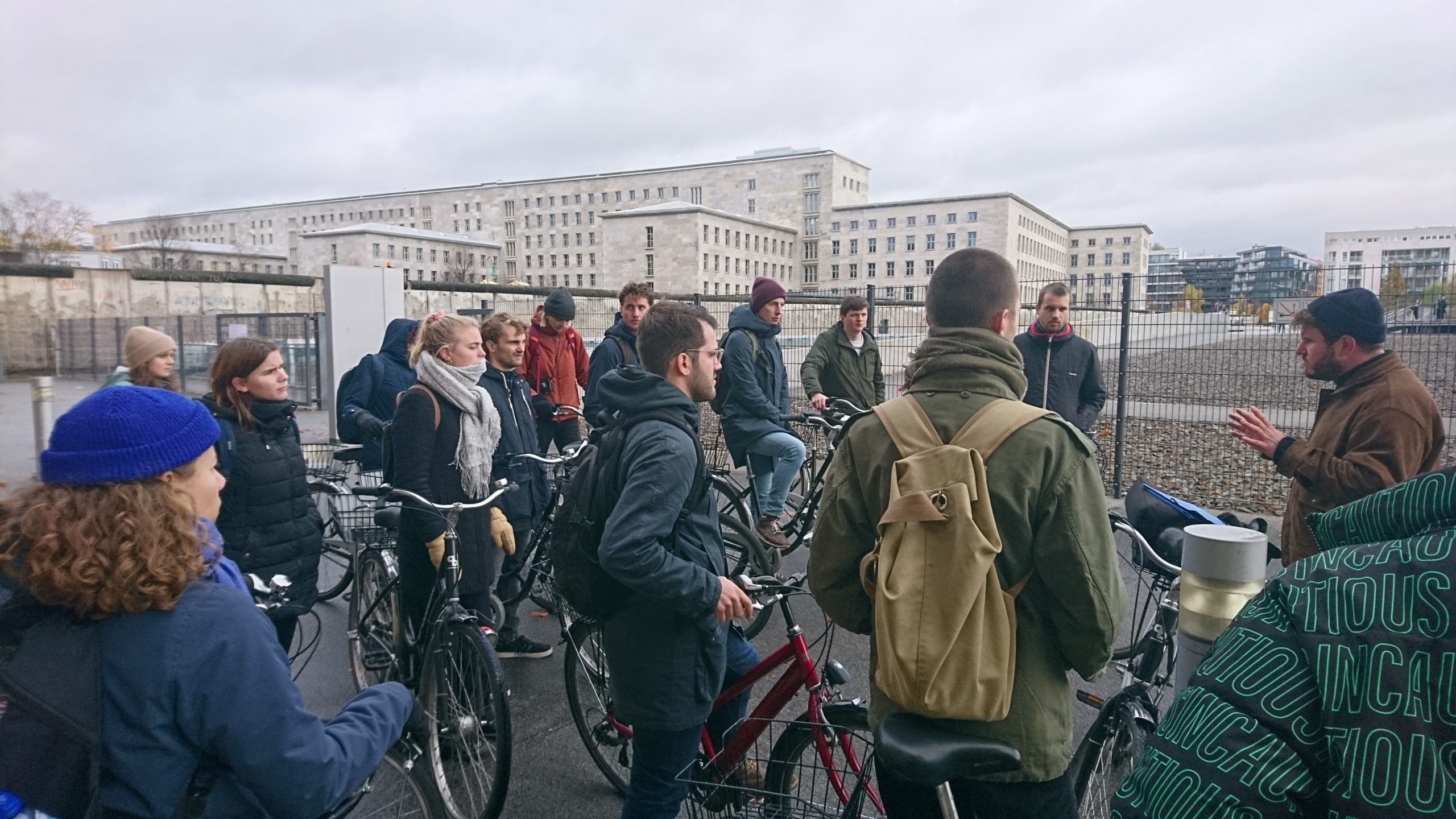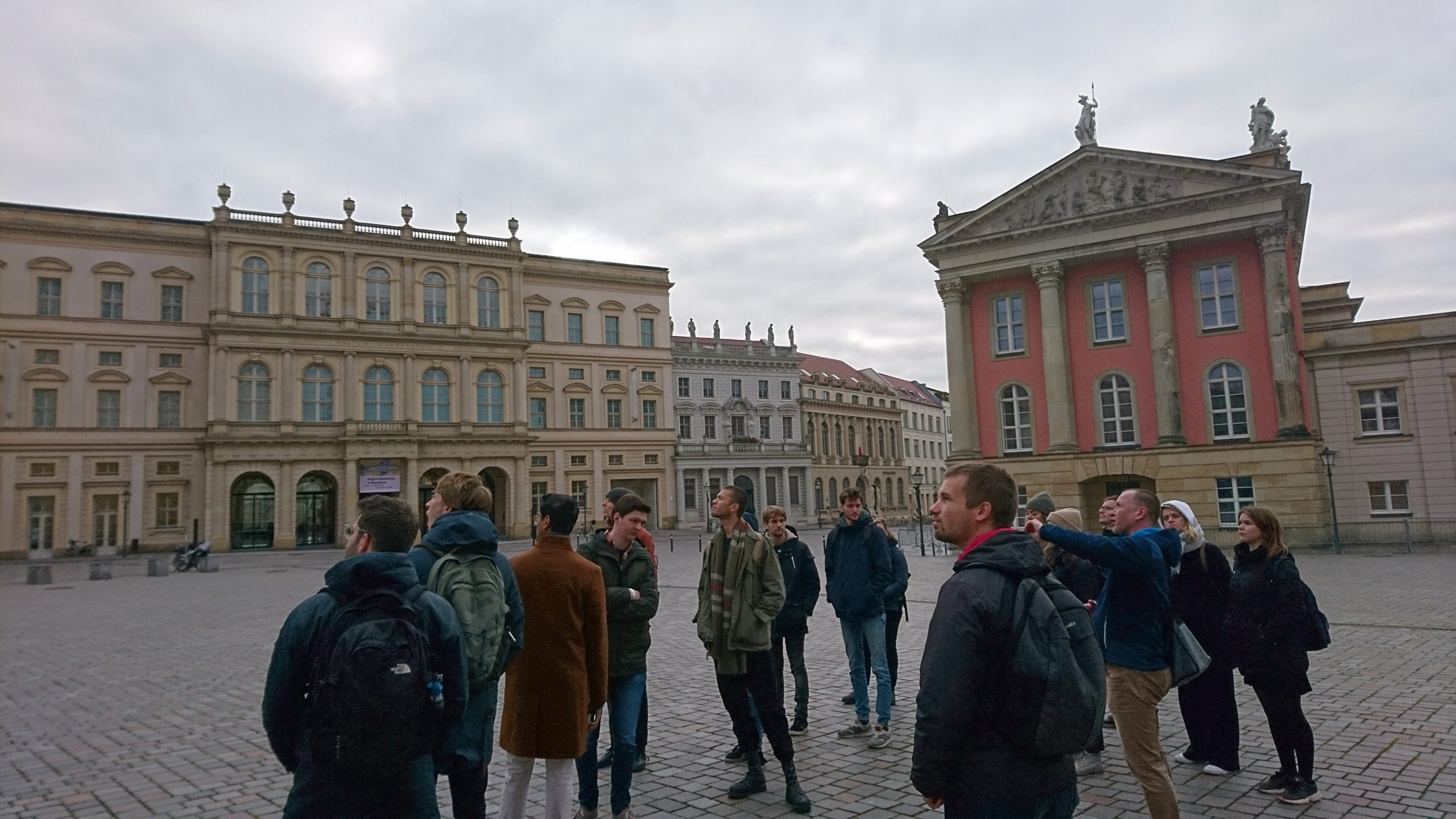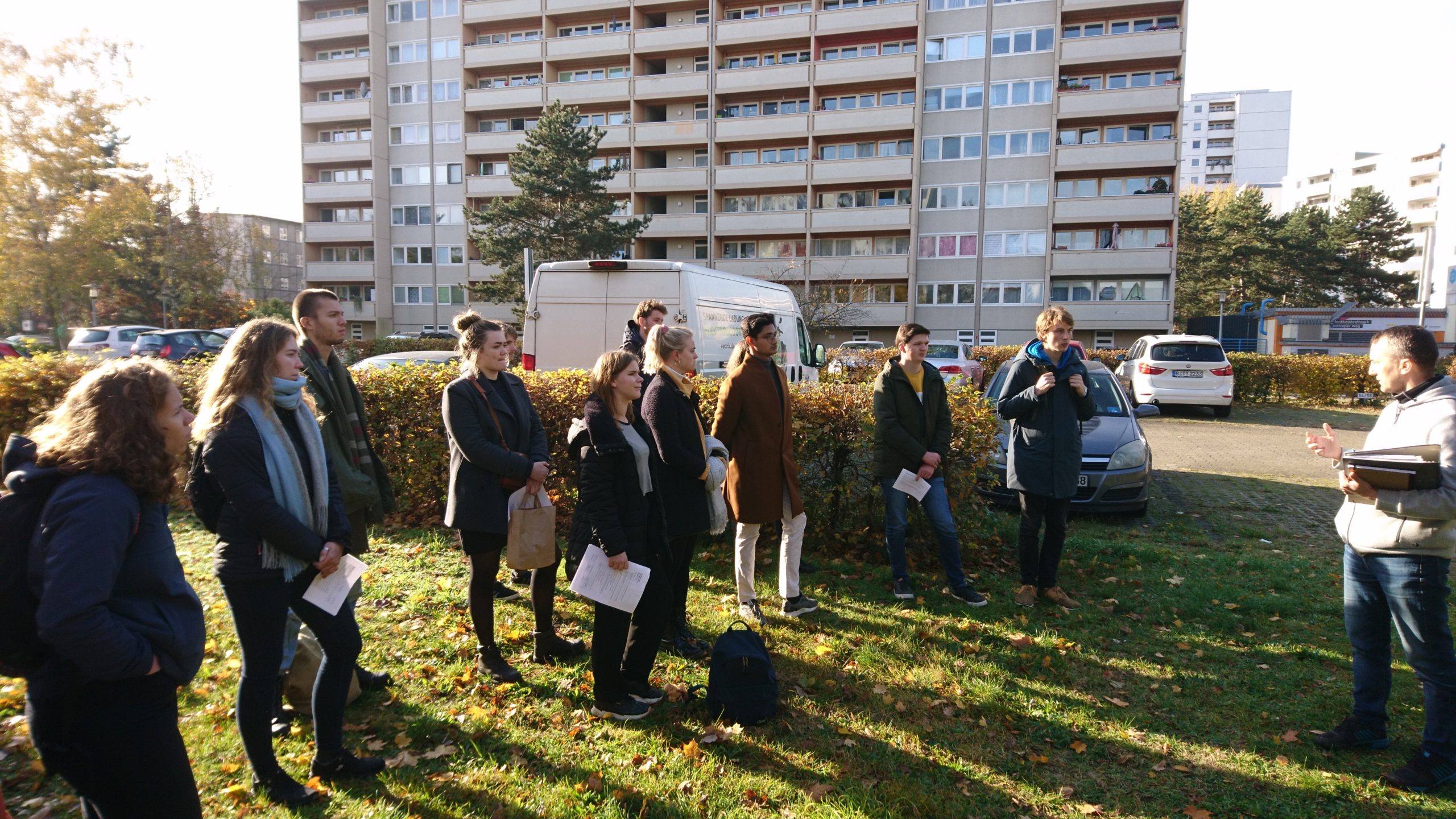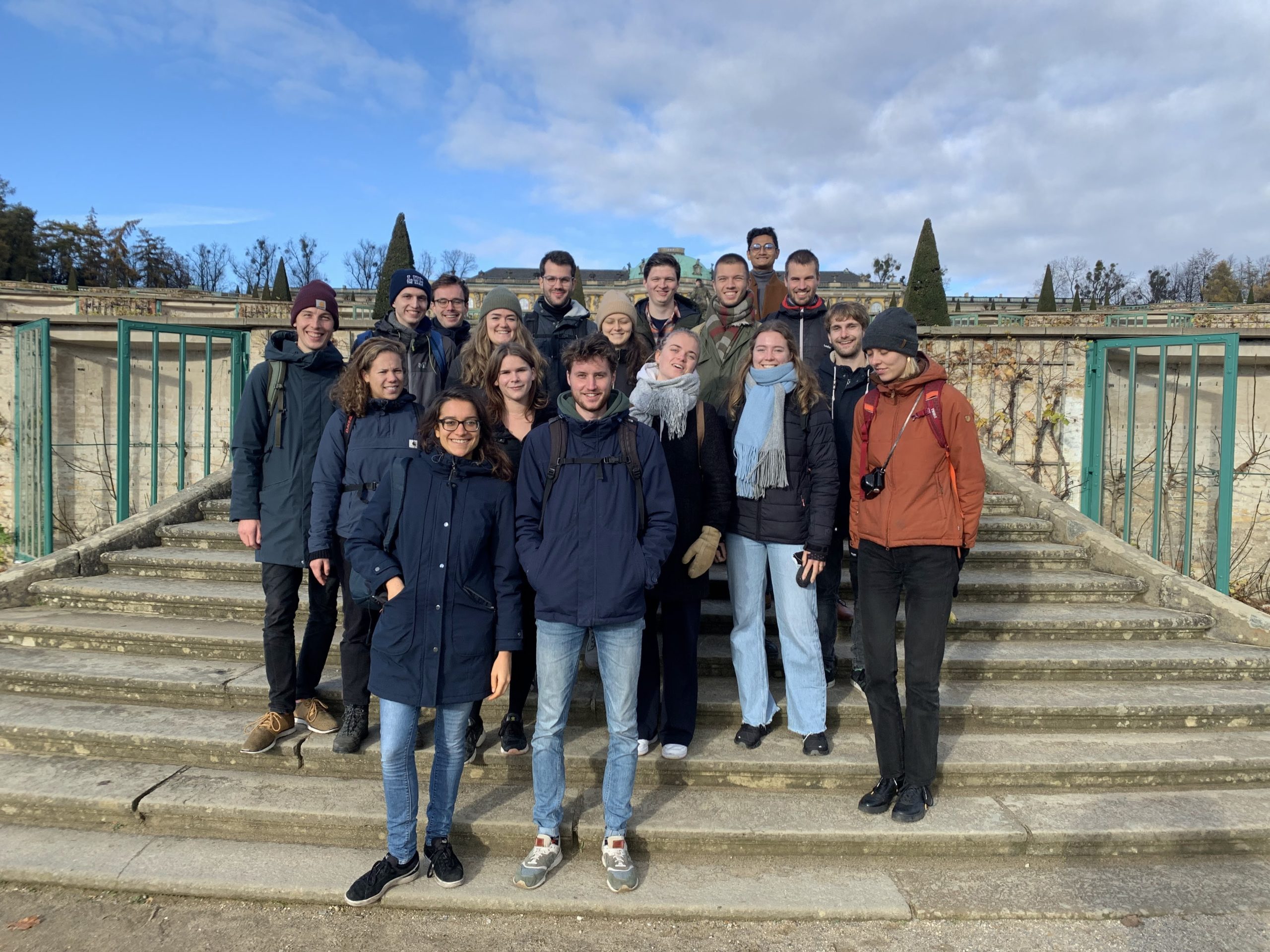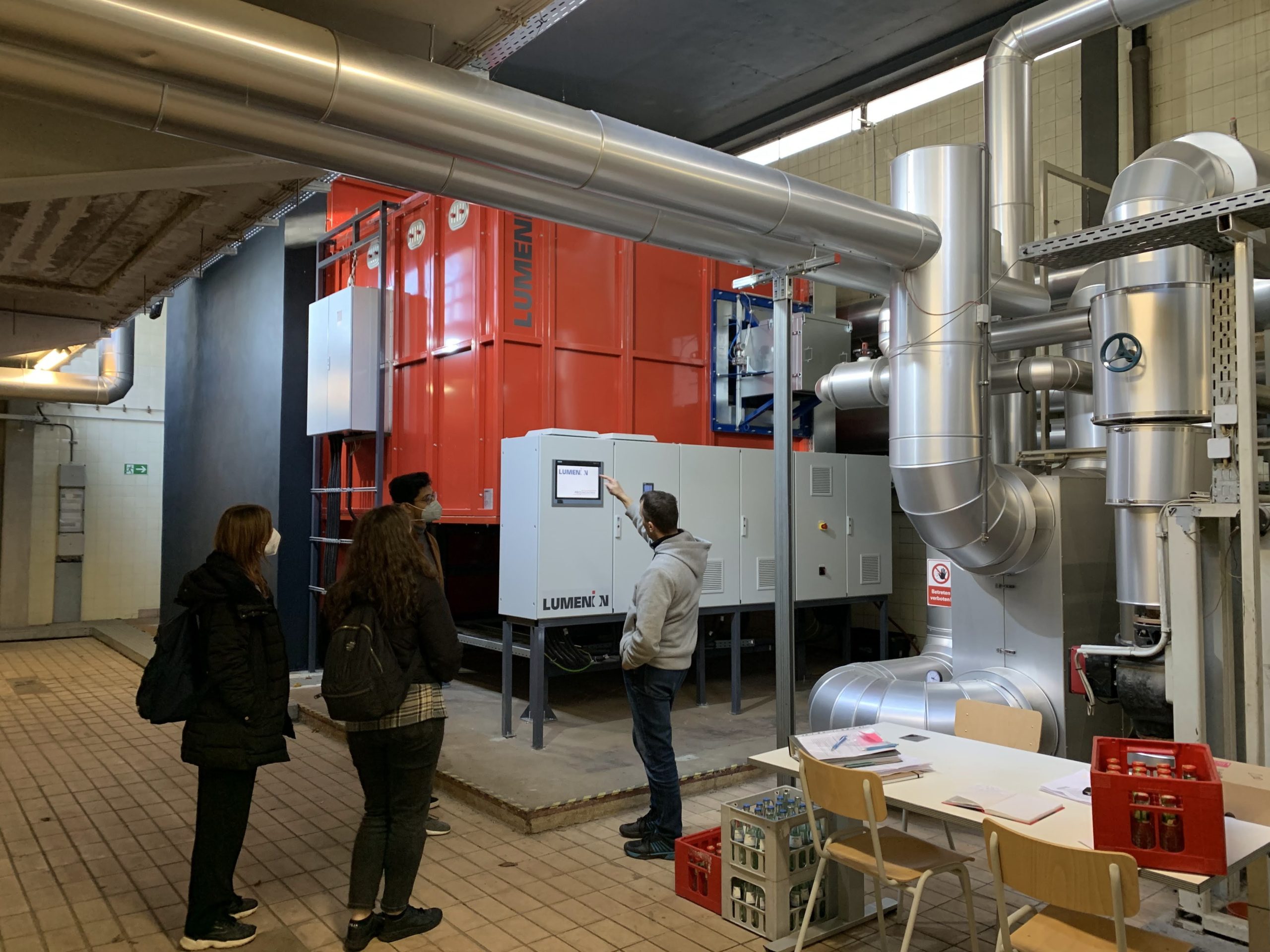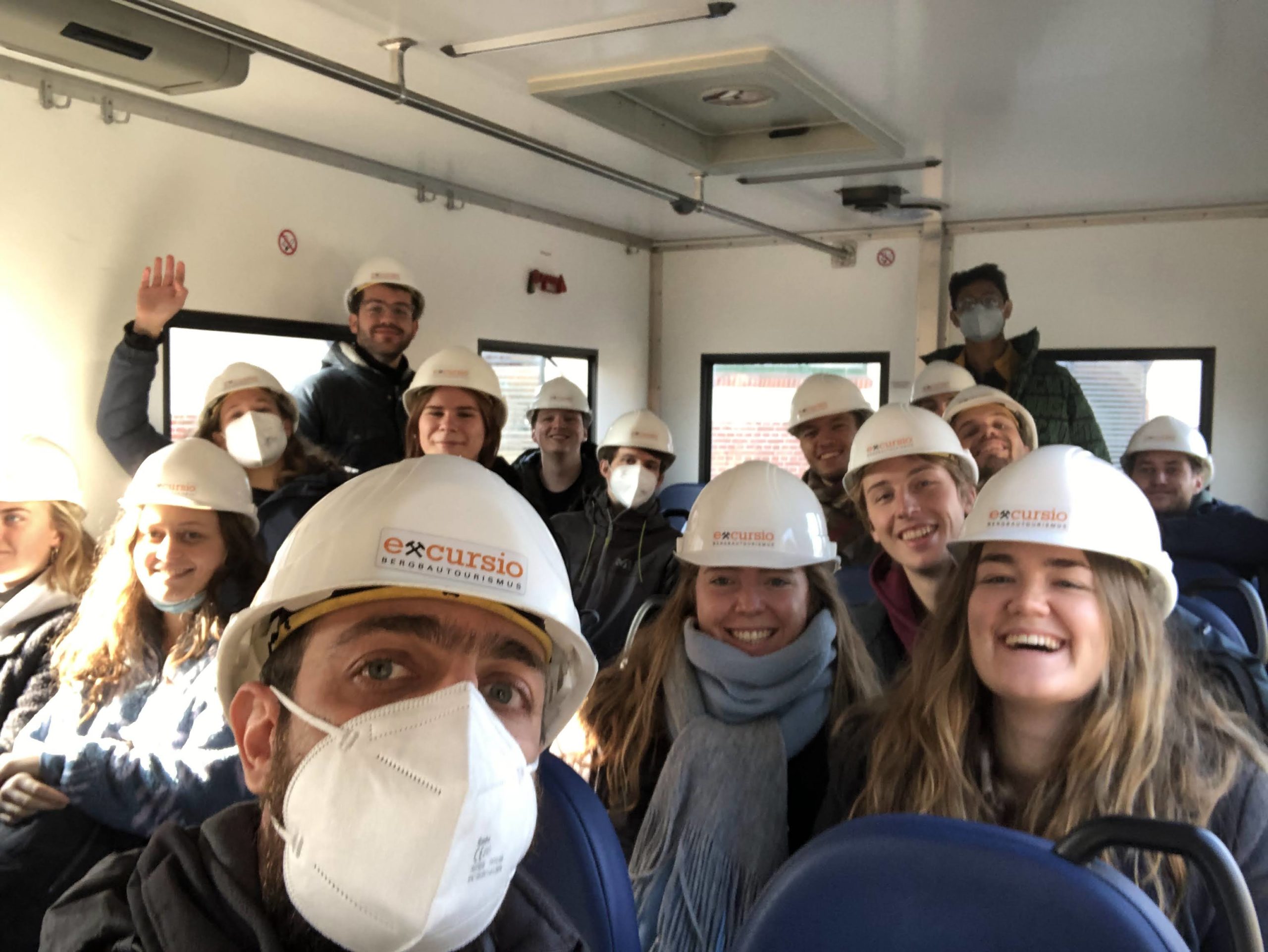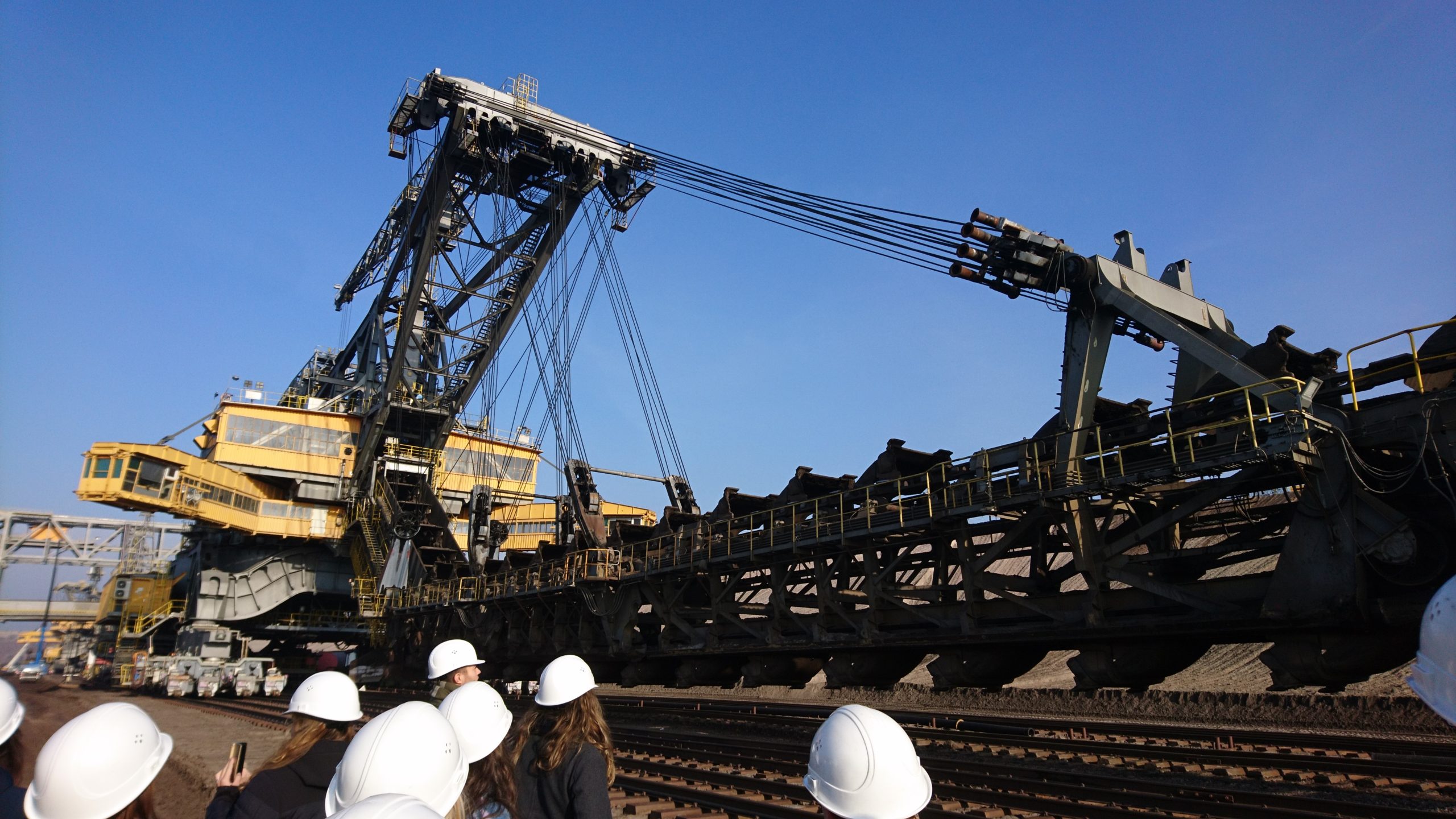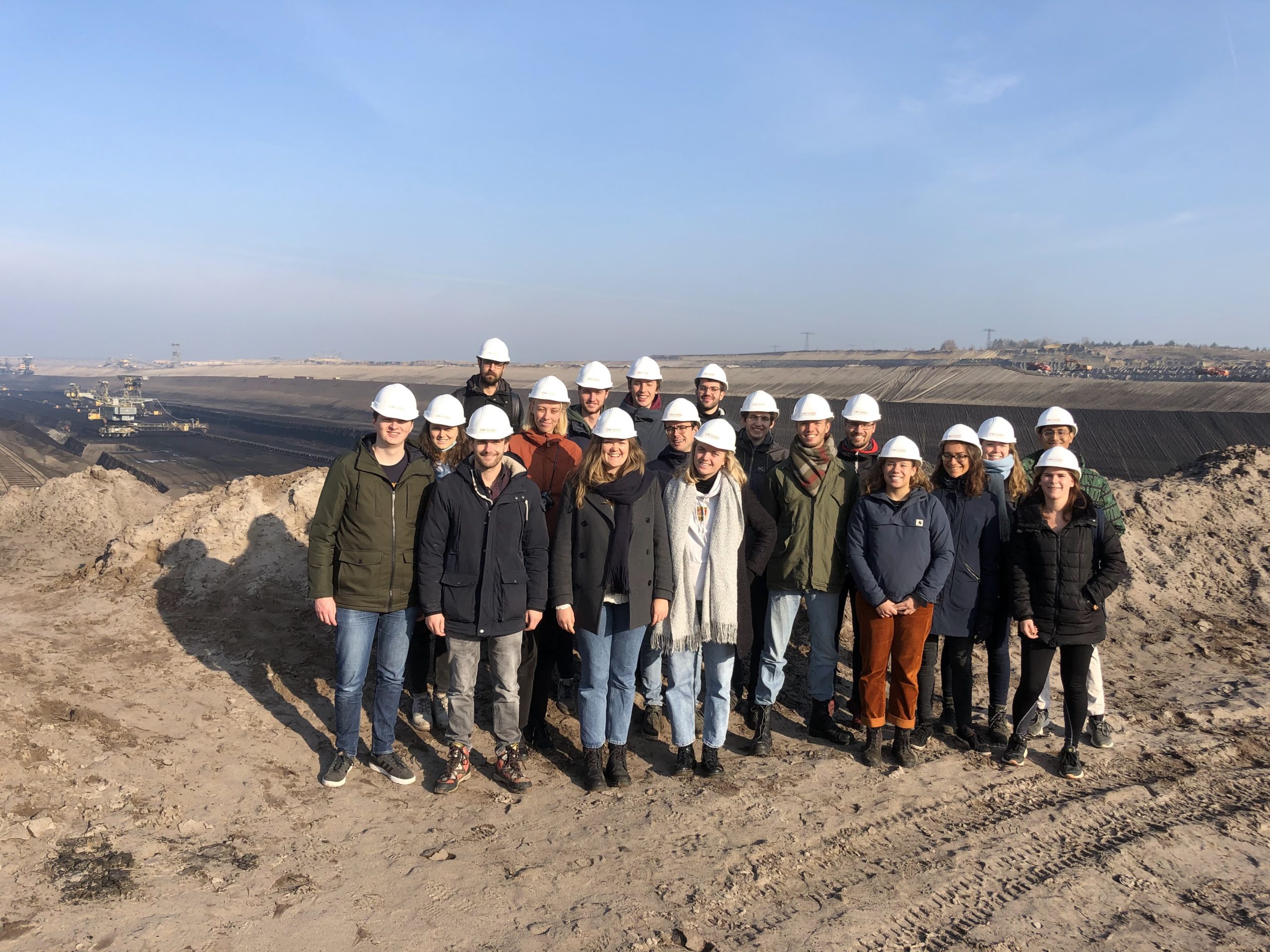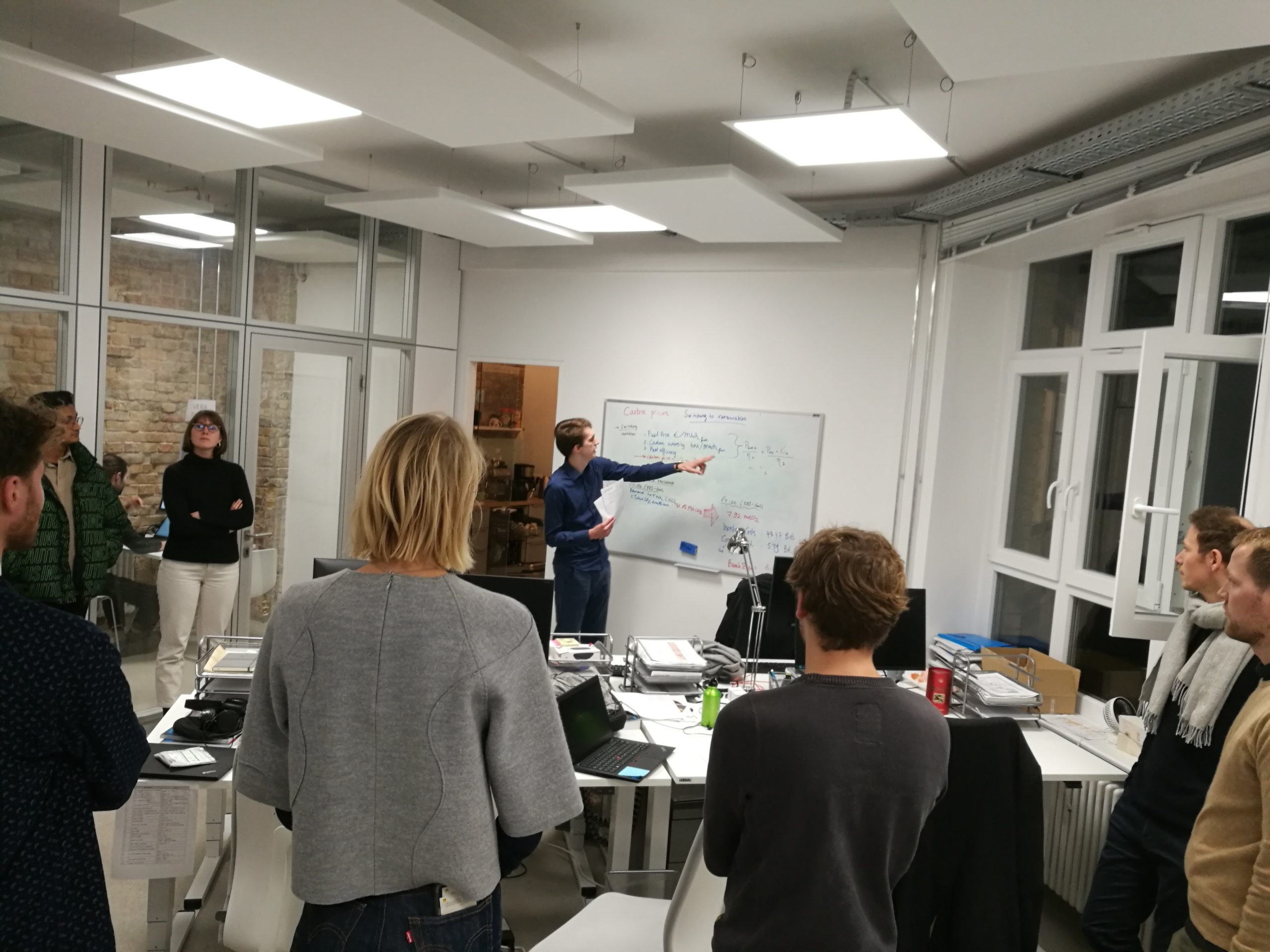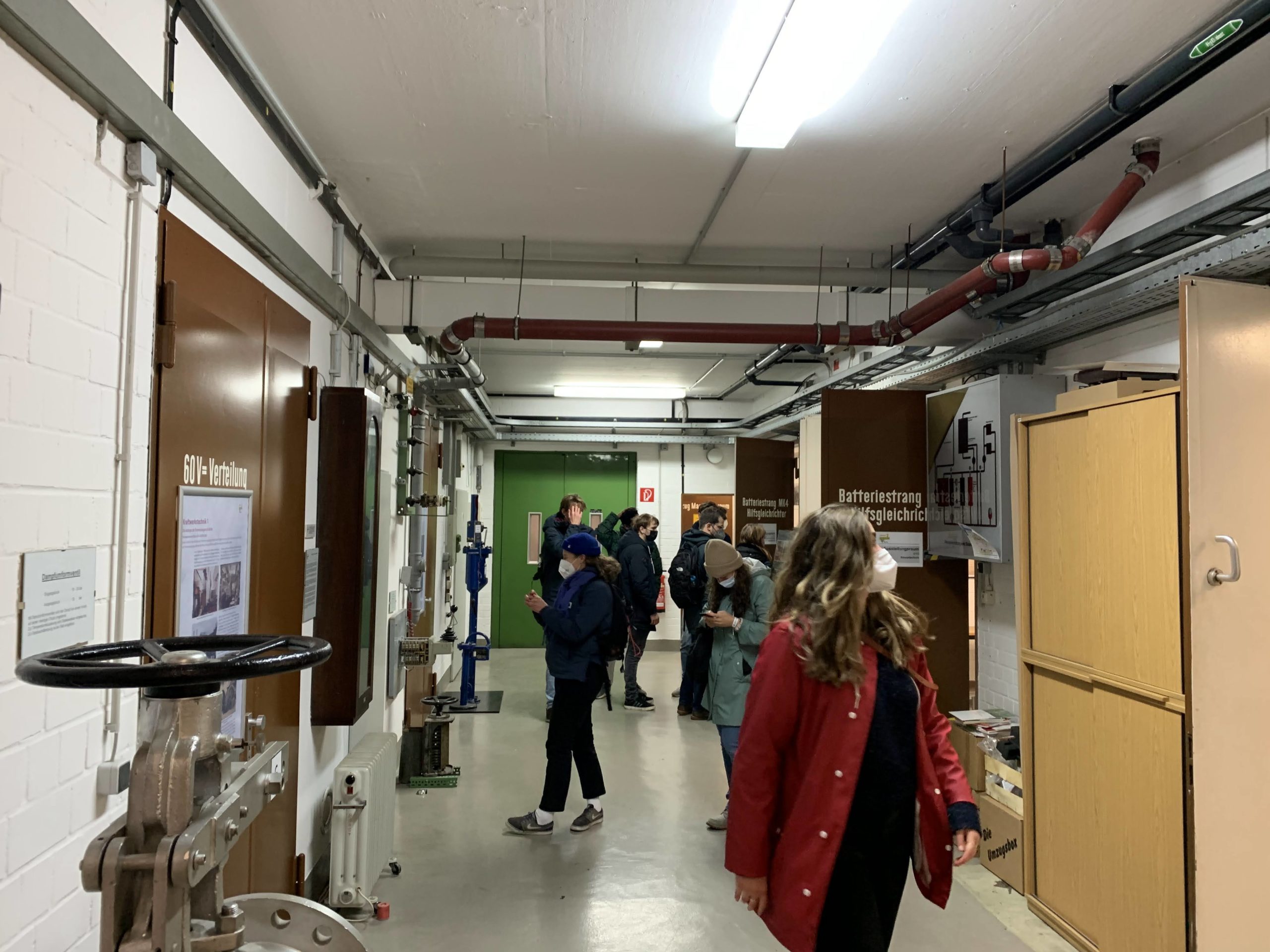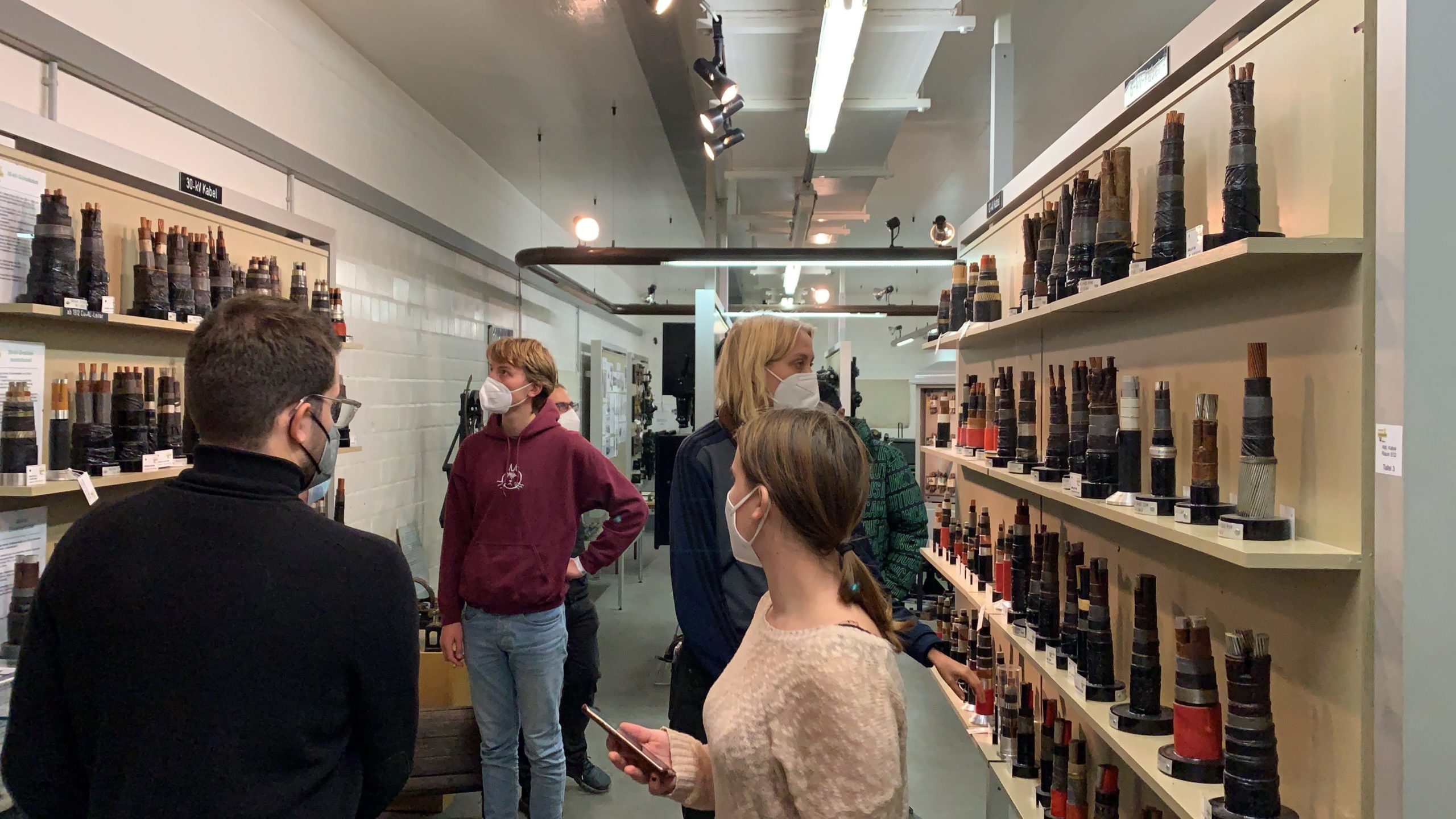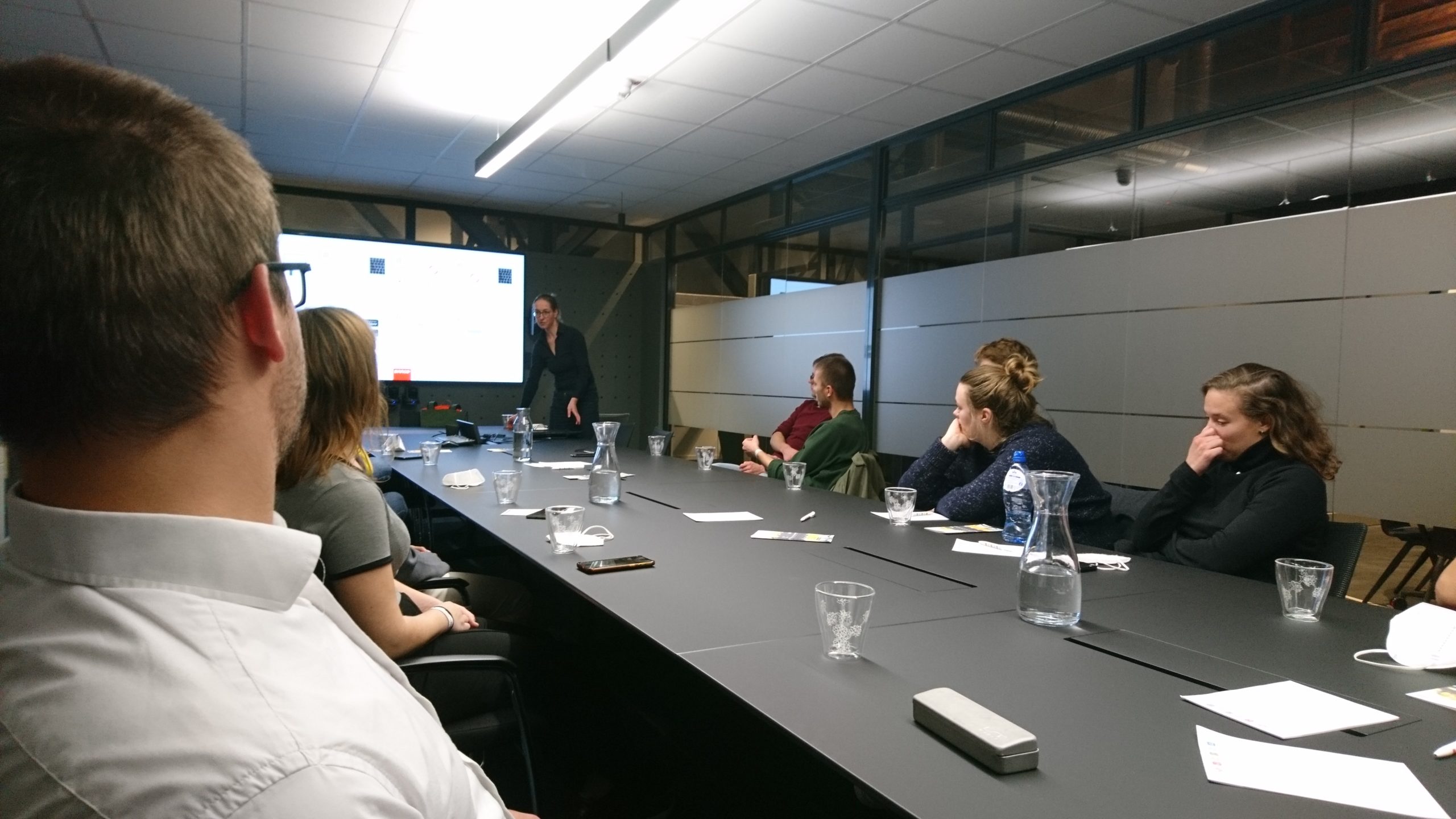Between 7 and 13 November 2021, NRG organized a study trip for the Energy Science students of Utrecht University. 19 students joined us to Berlin, the political centre of the German Energiewende and home to a vibrant blend of start-ups and established institutions.
Train troubles couldn’t stop us, and with two hours delay, we arrived in Berlin on Sunday evening. The next morning, our program began with a bike tour through the German capital, and a visit to the Energy Museum. Here, two volunteers showed us a fascinating collection of technical equipment throughout more than 100 years of electricity generation and distribution. On Tuesday, we visited Potsdam, where another tour guide awaited us to show us around. We ended the day at the Potsdam Institute for Climate Impact Research. In a comfortable atmosphere with burgers and beer, Símon Moreno and Chris Gong explained their intriguing and important work with the REMIND model to us, enabling them to simulate the world’s energy system and everything linked with it.
Wednesday started with a demonstration of LUMENION’s steel-based heat storage, where excess electricity is converted and stored in the form of heat. This heat can then be used for residential heating or other applications. The system was later put into context by Constanze Adolf from LUMENION in another exciting presentation. In between, we visited the Bundesverband Erneuerbare Energie (BEE). The BEE gave us an insight into their work, which includes political work as well as research and projects with national and international partners, and into the Energiewende in Germany.
On Thursday, we visited the open pit coal mine Welzow-Süd. Seeing the size of this mine, the machines, and their impact on the region really was… remarkable. It was a unique excursion, despite (or because of?) the fact that the lignite mined here and elsewhere is a major driver of the climate crisis.
Friday morning, we met up with Vattenfall. Iris van der Lugt and her colleagues shared their exciting experience working for a big player in the energy transition, whether it is in the heat or in the strategic department. In the afternoon, we were warmly welcomed at our last visit: Aurora Energy Research. After presenting the company and their work in the field of energy analysis and energy price forecasting, we did workshops with them, which we then had to present. After 2.5 hours of content, we more than deserved the subsequent drinks and get together with Aurora. Our trip was concluded with an exploratory excursion to Berlin’s nightlife on Friday night. Despite some final delays with the train, we all reached Utrecht safely again on Saturday evening.
In the name of all the students, I would like to thank the co-organizers Anne Aarts, Rens Baardman, and Erik van Battum, as well as the organizations we were visiting, and the Utrecht University U-Fonds that subsidized the trip. You made this an amazing week, and I am looking forward to next year’s edition!
Nikolaus Kelnreiter
